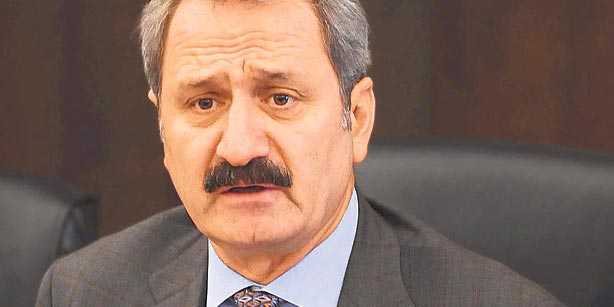Tehran Times Political Desk
TEHRAN – The two-day Iran-Turkey-Azerbaijan trilateral forum, which was attended by the foreign ministers of the three countries, concluded in Urmia, West Azerbaijan Province on Sunday.
Iranian Foreign Minister Ali Akbar Salehi held separate talks with Turkish Foreign Minister Ahmet Davutoglu and Azerbaijani Foreign Minister Elmar Mammadyarov on the sidelines of the meeting on Sunday.
Salehi and Mammadyarov stated that providing customs facilities, increasing the volume of trade between Iran and Azerbaijan, and expanding cooperation in various areas must be put on the agenda.
They also emphasized the necessity of implementing the agreements signed by the two countries.
Mammadyarov also extended an invitation to Salehi to visit Azerbaijan.
In another meeting, Salehi and Davutoglu explored ways to increase the volume of trade between Tehran and Ankara.
Salehi stated that Iran and Turkey have good cooperation in the regional and international arenas and called for closer bilateral cooperation between the two countries.
Davutoglu said that the trilateral meeting of Iranian, Turkish, and Azerbaijani foreign ministers paved the way for the expansion of regional cooperation.
And Turkey is keen to increase cooperation with Iran, particularly in economic interactions and the area of transportation, he added.
Iran, Turkey open new border crossing
Iran and Turkey opened a new border crossing during a ceremony held in Urmia on Saturday.
The Razi-Kapikoy border crossing is the third border crossing between Iran and Turkey, connecting Iran’s West Azerbaijan Province and Turkey’s Van Province.
Salehi, Davutoglu, and Mammadyarov attended the opening ceremony, which was held on the sidelines of their trilateral meeting.
The Turkish foreign minister delivered a speech during the ceremony, in which he said that the opening of the third border crossing between Iran and Turkey will mark a turning point in the relations between the two countries.
“Today (Saturday) the border crossing will be opened for the traffic of passengers and light vehicles, and will be ready for the passage of heavy vehicles on September 11,” Davutoglu stated.
Strengthening ties with neighboring states in all areas has been a foreign policy priority of Turkey over the past eight years, he added.
Davutoglu also stated that the volume of trade between Iran and Turkey is currently $10 billion and will reach $30 billion in the near future given the fact that a new border crossing has been opened between the two countries.
The Iranian foreign minister also delivered a speech at the ceremony, in which he said that the inauguration of the Razi-Kapikoy border crossing will help increase cooperation between Iran and Turkey.
Tehran and Ankara should make every effort to strengthen their relations, Salehi added.
 YEREVAN. – Turkey and Azerbaijan have real problems with national morale and political sufficiency, Armenian Deputy FM Shavarsh Kocharyan stated at the presentation of a book on Armenian-Turkish relations.
YEREVAN. – Turkey and Azerbaijan have real problems with national morale and political sufficiency, Armenian Deputy FM Shavarsh Kocharyan stated at the presentation of a book on Armenian-Turkish relations.




